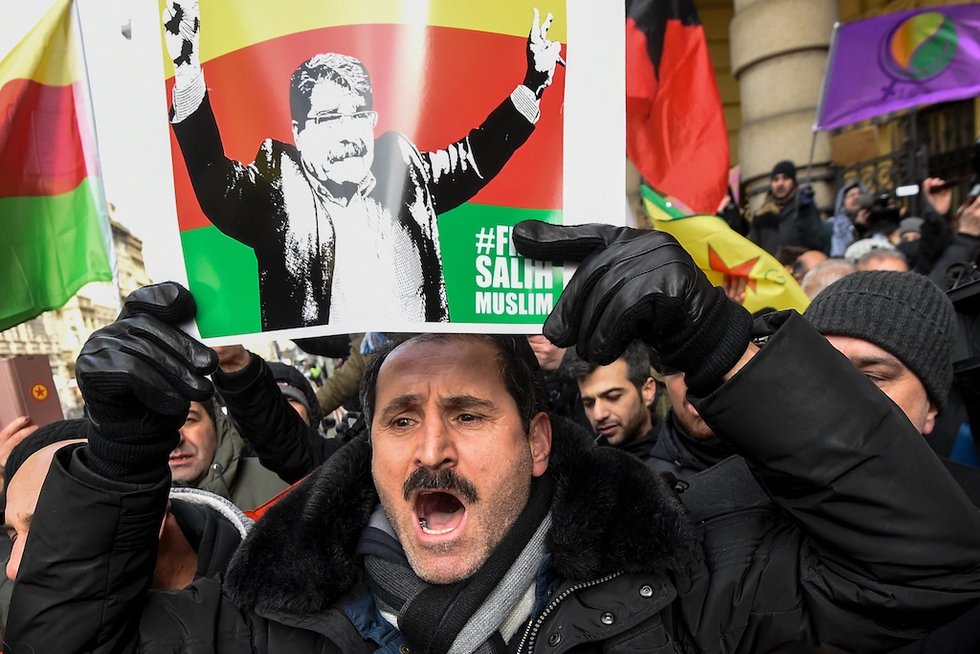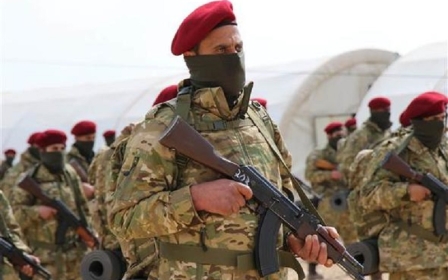Syrian Kurdish leader released from custody by Czech Republic

The Czech Republic on Tuesday released Syrian Kurdish political leader Salih Muslim from custody, days after he was arrested on an Interpol "red notice" issued by Turkey.
Muslim, who is the former co-leader of the Democratic Union Party (PYD) in the Syria, was arrested in Prague on Saturday after his meeting with politicians and journalists.
Interpol red notices are issued by the organisation either on its own initiative or following requests from Interpol member states to alert others that an individual's arrest is sought.
After three days of custody, however, a court ordered Salih's release.
The move has angered Turkey who had said they expected the Czech Republic to extradite Muslim to Turkey, where he is currently on a most-wanted list for his involvement in the PYD, which the Turkish government regards as an offshoot of the outlawed Kurdistan Workers' Party (PKK).
"We are saddened to see Salih Muslim released. We are unhappy," said Ahmet Necati Bigali, Turkey's ambassador to the Czech Republic, who warned the move could harm Turkish-Czech relations.
"Unfortunately, the Czech court has taken a decision opposite to our bilateral and allied relationship. This decision might effect negatively our bilateral relations."
Bekir Bozdag, Turkey's deputy prime minister, also hit out at the Czechs, accusing them of making a "decision supporting terrorism", according to Anadolu Agency.
Turkish and Czech media had suggested that Muslim could have been used as part of a prisoner exchange for two Czechs held in Turkey.
Miroslav Farkas and Marketa Vselichova were arrested in 2016 and sentenced to six years in prison for alleged links to the People's Protection Units (YPG), the PYD's armed wing.
The two maintain that they had been in the YPG-controlled area of northern Syria in order to build a field hospital near the Turkey-Iraq border.
Muslim was elected co-chair of the PYD in 2010 and led the party, along with co-chair Asya Abdullah, as Syria descended into civil war.
The YPG became a major fighting force against the Islamic State group, and were supported by the US as part of the Syrian Democratic Forces (SDF) coalition with Arab partners in northern Syria.
In 2017, Muslim and Abdullah were replaced by Shahoz Hassan and Aysha Hisso as PYD leaders.
Turkey launched an operation into Afrin on 20 January with the aim of driving the PYD out of the enclave.
The Syrian Observatory for Human Rights has reported that 219 members of the pro-Turkish forces, which includes Turkish military and Syrian fighters, and 243 members of the pro-PYD forces have been killed so far. As many as 170 civilians have also been killed.
Both Turkey and the PYD/SDF have issued different figures, however.
New MEE newsletter: Jerusalem Dispatch
Sign up to get the latest insights and analysis on Israel-Palestine, alongside Turkey Unpacked and other MEE newsletters
Middle East Eye delivers independent and unrivalled coverage and analysis of the Middle East, North Africa and beyond. To learn more about republishing this content and the associated fees, please fill out this form. More about MEE can be found here.




